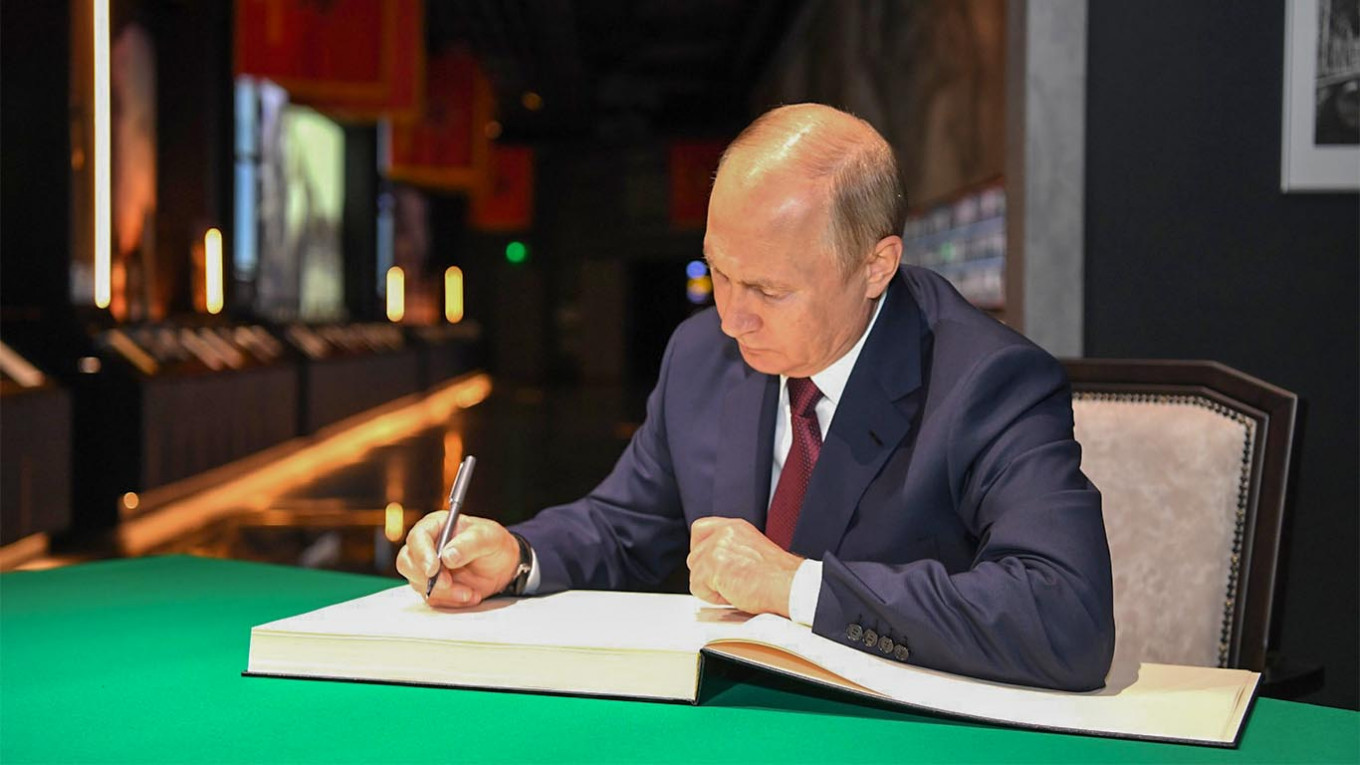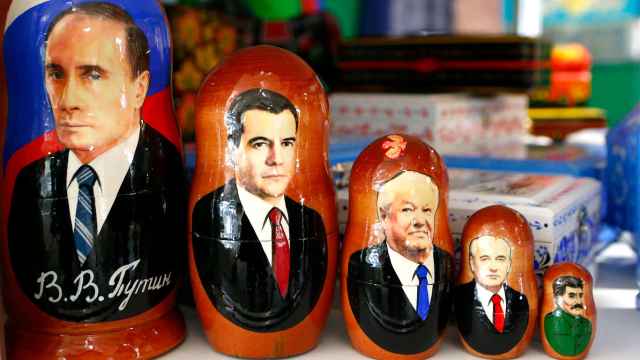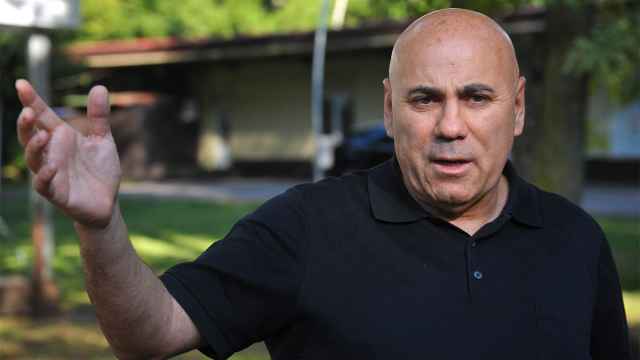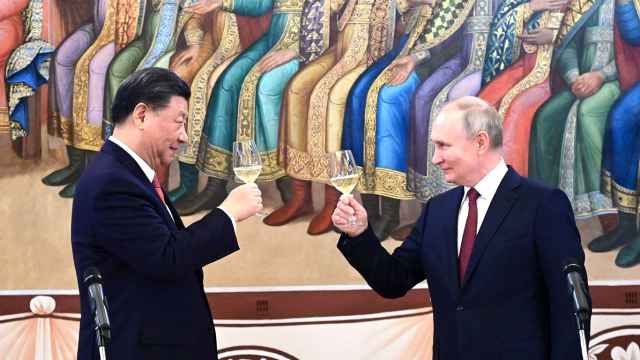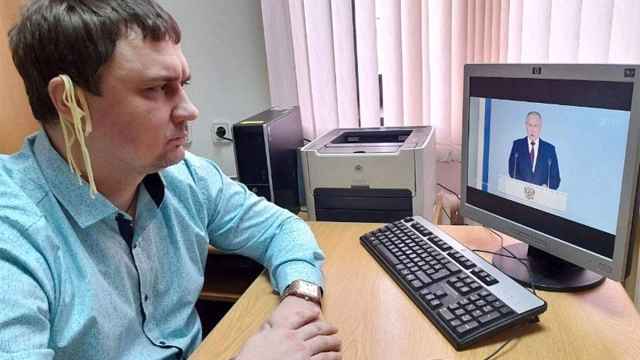The public vote on approving amendments to the constitution on July 1 is a key moment in Russia for many reasons.
It is intended to legalize the resetting of the clock on presidential terms, allowing Vladimir Putin to remain in power, and mobilizing the masses to stabilize the president’s falling ratings. It’s also meant to enshrine the values of the “Putin majority,” such as defining the “family” exclusively as the union of a man and a woman, in the constitution.
Enshrining any state ideology in law runs counter to the current Boris Yeltsin-era constitution, which forbids the dominance of any ideology. But that doesn’t matter, because what is really emerging here is a brand new Putin-era constitution that just happens to share the same cover as the Yeltsin-era one.
The ultraconservative values of Putin’s constitution are as artificial as the mythical community known as “the majority.” For instance, Putin has included such notions in the constitution as God, a thousand years of history, and Russians as a state-forming nation. They make up an ideology that is a fusion of fragments of Soviet propaganda clichés and quasi-patriotic banalities. It’s as though someone had clumsily meshed together the Communist triad of “Lenin, Party, Komsomol” with Count Sergei Uvarov’s famous triad of “Orthodoxy, Autocracy, Nationality” under the nineteenth-century czar Nicholas I.
The “majority” needs convincing that these values are crucial to its own survival, that it was humiliated by the collapse of the Soviet Union and the turbulent 1990s, and that these values will make Russia great again.
The foundation for this construction of a new Russia, different from Yeltsin’s, was laid in May 2000 at Putin’s first presidential inauguration. Its outlines —a combination of authoritarianism and state capitalism — had taken shape by 2003, the year the oligarch Mikhail Khodorkovsky was arrested and the democratic parties were defeated in parliamentary elections.
The “Putin majority” was an ad hoc construction built less on ideology than political spin. This version of the “majority” was relatively peaceful and not highly mobilized, as it was the product of petrodollar-fueled economic growth in the early 2000s. In those years, Putin’s elite supporters were more interested in real estate abroad and fine dining than the memory of their forebears and the glory of the domestic defense industry. To maintain this majority, it had to become militarized and fixated on myths about the country’s heroic history.
First came the annexation of Crimea in 2014. After this goal was achieved came the construction and mobilization of the “Crimea majority,” which was strengthened through the appearance of enemies, both external — the West — and internal: the “liberals” (another imaginary group), supported by the enemy abroad.
“The people” is an abstract concept, but “enemy of the people” is entirely concrete. Its negative foundation —hatred of the enemy, and the “besieged fortress” mentality — is a unifying concept. This aggressive attitude toward a hostile outside world has essentially replaced Marxism-Leninism as something for Russians to rally around.
Over time, the unifying effect of annexing Crimea — which initially sent Putin’s ratings soaring—began to wear off, and the “Crimea majority” again began to demobilize and focus on economic and social issues at home. Even the bombing of Syria ceased to inspire the majority, which started to slip away, crumbling from a rock into sand. And so the task was set of reassembling this sand and gluing it back together. That glue would be made of history, military glory, Stalin-era victories, industrial might, and Orthodox faith.
This process began with the rehabilitation of the discredited Molotov-Ribbentrop pact of 1939. It is supposed to culminate now with the enshrinement in the constitution of an ultraconservative worldview and resetting the clock on presidential terms, accompanied by the postponed Victory Day military parade.
Yet the basis for a Putin majority 3.0 (if the Crimea majority was version 2.0) is weak. The mobilization of the public sector is low, even compared with the demobilized majority 1.0 from the era of economic growth. Back then, the business community was also content with Putin, whereas right now they feel abandoned by the state during the new coronavirus pandemic.
All the same, the rebuilding of a majority is following the well-trodden path of rapture over past victories and the shameless mobilization of the public sector. It’s important to show those who are still wavering which side has support, to dissuade them from going over to those who, in opinion polls, express less and less trust in and approval of the country’s leadership.
Putin is now an institution, a political entity. Vyacheslav Volodin, speaker of the Duma, has created a construction in which Putin equals Russia and vice versa. To stay in charge, Putin needs the support of the majority, even if it’s a formality. This is why the question “Why does Putin need a public vote, if the amendments have already been passed by parliament?” is incorrectly formulated. He needs the vote to convince both himself and the public that the “majority 3.0” really does exist.
Putin is using the public vote to make ordinary people his accomplices in extending his rule and sanctioning the domination of an ultraconservative ideology. If the turnout and votes in favor of changing the constitution are high enough, Putin will be able to use those figures as a license whenever the nation is unhappy, to say: “Look, it wasn’t just my administration and I; it was you who wanted this! Together we wanted to uphold this model of governance, and you share responsibility for it with me.”
Whether this kind of construction is convincing is another matter. The nation’s history of referendums (though the upcoming vote doesn’t meet Russia’s legal requirements for a referendum) isn’t one of great success. The March 1991 referendum on preserving the Soviet Union as a country did not prevent its collapse just a few months later. The Russian referendum in April 1993 on support for Yeltsin and the government didn’t solve the standoff between the parliament and president, or prevent a mini civil war in Moscow later that year.
Programmed into the upcoming vote on approving the constitutional amendments are a national divide, the demobilization of the Putin majority 3.0, and its fragmentation. Not even impressive statistics in terms of turnout and votes in favor of the amendments, obtained with the help of public sector voters, will help. This strange mix of deception and self-deception is unlikely to stabilize the president and government’s ratings, which began to fall immediately after Putin’s victory in the 2018 presidential election.
This article was first published by the Carnegie Moscow Center.
A Message from The Moscow Times:
Dear readers,
We are facing unprecedented challenges. Russia's Prosecutor General's Office has designated The Moscow Times as an "undesirable" organization, criminalizing our work and putting our staff at risk of prosecution. This follows our earlier unjust labeling as a "foreign agent."
These actions are direct attempts to silence independent journalism in Russia. The authorities claim our work "discredits the decisions of the Russian leadership." We see things differently: we strive to provide accurate, unbiased reporting on Russia.
We, the journalists of The Moscow Times, refuse to be silenced. But to continue our work, we need your help.
Your support, no matter how small, makes a world of difference. If you can, please support us monthly starting from just $2. It's quick to set up, and every contribution makes a significant impact.
By supporting The Moscow Times, you're defending open, independent journalism in the face of repression. Thank you for standing with us.
Remind me later.



